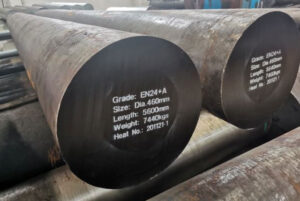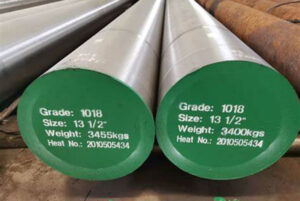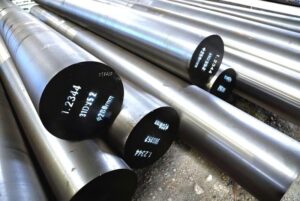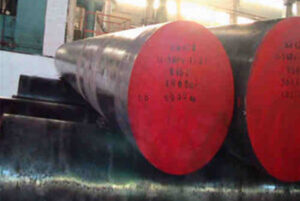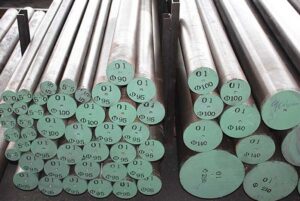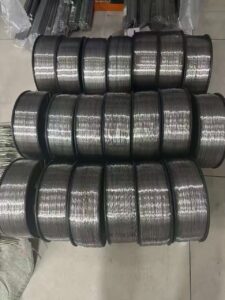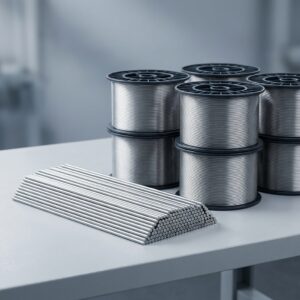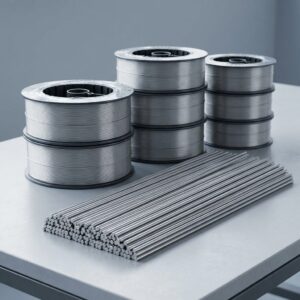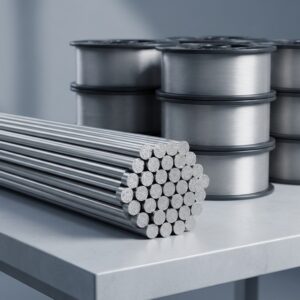60Si2MnA steel, a high-quality spring steel, is renowned for its exceptional strength, durability, and resistance to fatigue. Used extensively in manufacturing automotive parts, tools, and high-stress components, this material is prized for its ability to withstand harsh conditions and heavy loads. In this guide, we will delve deep into the specifics of 60Si2MnA steel, exploring its composition, properties, applications, advantages, and limitations. We’ll also provide a detailed comparison of different metal powder models and answer frequently asked questions to give you a thorough understanding of this versatile material.
Overview of 60Si2MnA Steel
60Si2MnA steel is a silicon-manganese alloyed spring steel with high strength and elasticity. Its chemical composition includes approximately 0.6% carbon, 2% silicon, and manganese, which imparts excellent mechanical properties and wear resistance. This steel is widely used in the automotive industry, railways, and various engineering applications due to its ability to endure repetitive stress and dynamic loading.
Composition and Properties of 60Si2MnA Steel
| Element | Percentage (%) |
|---|---|
| Carbon (C) | 0.56-0.64 |
| Silicon (Si) | 1.50-2.00 |
| Manganese (Mn) | 0.70-1.00 |
| Phosphorus (P) | ≤ 0.035 |
| Sulfur (S) | ≤ 0.035 |
Mechanical Properties
| Property | Value |
|---|---|
| Tensile Strength | 1270-1470 MPa |
| Yield Strength | ≥1170 MPa |
| Elongation | ≥6% |
| Hardness (HRC) | 44-48 |
| Modulus of Elasticity | 210 GPa |
| Impact Toughness | ≥31 J |
Characteristics of 60Si2MnA Steel
60Si2MnA steel is characterized by its high elasticity, tensile strength, and excellent wear resistance. Its composition ensures good hardenability and tempering stability, making it suitable for producing various spring components subjected to high stress. The presence of silicon enhances its fatigue resistance, which is critical in dynamic applications like automotive suspension systems.
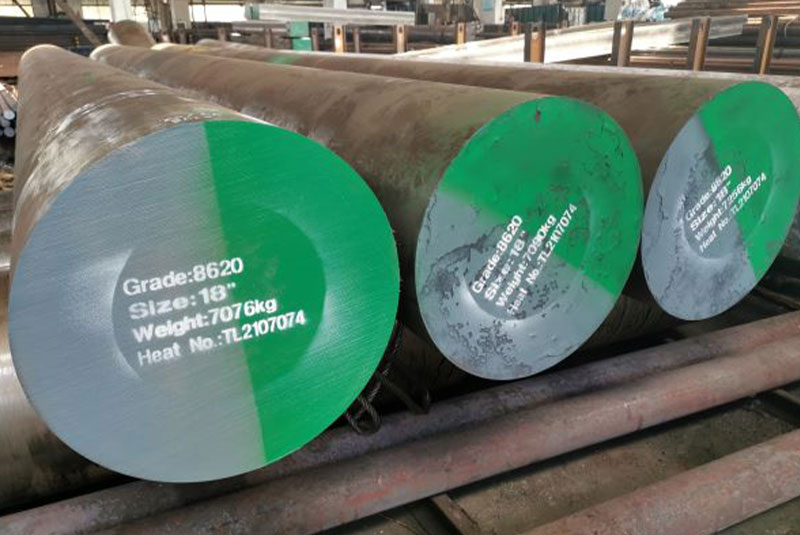
Applications of 60Si2MnA Steel
| Application | Description |
|---|---|
| Automotive Springs | Used in car suspension systems for its high strength and elasticity. |
| Railway Tracks | Employed in rail clips and other components due to its wear resistance. |
| Industrial Tools | Utilized in the manufacturing of high-stress tools and dies. |
| Agricultural Machinery | Components subjected to repetitive stress and dynamic loading. |
| Construction Equipment | Used in heavy-duty machinery parts. |
| Mechanical Springs | Ideal for producing various types of mechanical springs. |
| Aviation Components | Applied in aircraft landing gears and other high-stress parts. |
| Defense Equipment | Utilized in military vehicle components. |
| Mining Machinery | Used in parts exposed to harsh and abrasive environments. |
| Marine Applications | Employed in shipbuilding for its corrosion resistance. |
Specific Metal Powder Models of 60Si2MnA Steel
- 60Si2MnA-01
- Description: Standard model for automotive springs.
- Characteristics: High tensile strength and good fatigue resistance.
- 60Si2MnA-02
- Description: Enhanced model with improved hardenability.
- Characteristics: Suitable for industrial tools and dies.
- 60Si2MnA-03
- Description: Modified for railway applications.
- Characteristics: Superior wear resistance and impact toughness.
- 60Si2MnA-04
- Description: Optimized for agricultural machinery.
- Characteristics: High elasticity and durability under repetitive stress.
- 60Si2MnA-05
- Description: High-performance model for construction equipment.
- Characteristics: Enhanced strength and resistance to dynamic loading.
- 60Si2MnA-06
- Description: Special model for aviation components.
- Characteristics: High fatigue resistance and impact toughness.
- 60Si2MnA-07
- Description: Marine-grade model.
- Characteristics: Excellent corrosion resistance.
- 60Si2MnA-08
- Description: Defense equipment model.
- Characteristics: Superior strength and wear resistance.
- 60Si2MnA-09
- Description: Mining machinery model.
- Characteristics: High durability in harsh environments.
- 60Si2MnA-10
- Description: Custom model for specific mechanical springs.
- Characteristics: Tailored properties for specific applications.
Advantages of 60Si2MnA Steel
- High Strength: 60Si2MnA steel offers superior tensile and yield strength, making it ideal for high-stress applications.
- Excellent Elasticity: Its high elasticity ensures it can return to its original shape after deformation, crucial for spring components.
- Good Wear Resistance: The composition provides excellent resistance to wear and abrasion, extending the lifespan of components.
- Fatigue Resistance: Enhanced fatigue resistance due to silicon content, making it suitable for dynamic and repetitive loading.
- Versatility: Applicable in various industries, including automotive, railways, agriculture, and construction.
Disadvantages of 60Si2MnA Steel
- Cost: The high quality and specific composition can make 60Si2MnA steel more expensive than other materials.
- Machinability: While it offers great mechanical properties, it can be challenging to machine due to its hardness.
- Corrosion Resistance: Although better than some steels, it may still require protective coatings or treatments in highly corrosive environments.
- Heat Treatment Sensitivity: Requires precise control during heat treatment to achieve desired properties.
Specifications, Sizes, Grades, Standards
| Specification | Details |
|---|---|
| Sizes | 6-150 mm diameter |
| Grades | Standard, High-performance, Custom |
| Standards | GB/T 1222-2007 |
Suppliers and Pricing Details
| Supplier | Location | Price Range (USD/kg) |
|---|---|---|
| BaoSteel | China | 1.5-2.5 |
| Nippon Steel | Japan | 2.0-3.0 |
| ArcelorMittal | Luxembourg | 1.8-2.8 |
| Tata Steel | India | 1.7-2.7 |
| US Steel | USA | 2.2-3.2 |
Comparing Pros and Cons of 60Si2MnA Steel
| Aspect | Advantages | Disadvantages |
|---|---|---|
| Strength | High tensile and yield strength, ideal for heavy-duty applications. | Increased cost compared to lower-grade steels. |
| Elasticity | Superior elasticity, perfect for springs and dynamic components. | May require precise heat treatment to maintain properties. |
| Wear Resistance | Excellent wear resistance, extending component life. | Can be challenging to machine due to hardness. |
| Fatigue Resistance | High resistance to fatigue, suitable for repetitive stress. | Potential corrosion issues in harsh environments. |
| Versatility | Applicable across various industries and uses. | Higher cost may limit use in cost-sensitive applications. |
FAQ
| Question | Answer |
|---|---|
| What is 60Si2MnA steel primarily used for? | It is used in automotive springs, railway tracks, industrial tools, and other high-stress components. |
| How does the composition of 60Si2MnA steel enhance its properties? | The carbon, silicon, and manganese content provide high strength, elasticity, and wear resistance. |
| What are the benefits of using 60Si2MnA steel in automotive applications? | Its high tensile strength and fatigue resistance make it ideal for suspension systems and other components. |
| Are there any drawbacks to using 60Si2MnA steel? | It can be expensive, challenging to machine, and may require protective coatings in corrosive environments. |
| How does 60Si2MnA steel compare to other spring steels? | It offers superior strength and elasticity but at a higher cost and with specific machining challenges. |
| Can 60Si2MnA steel be customized for specific applications? | Yes, various models and grades are available to suit different industrial requirements. |
| What is the typical hardness of 60Si2MnA steel? | The hardness typically ranges from 44 to 48 HRC. |
| Is 60Si2MnA steel suitable for marine applications? | Yes, with appropriate treatments or coatings, it can be used in marine environments. |
| How is 60Si2MnA steel priced compared to other high-strength steels? | It is relatively more expensive due to its specialized properties and high-quality composition. |
| What industries benefit most from using 60Si2MnA steel? | Automotive, railway, construction, aviation, and industrial tool manufacturing. |

